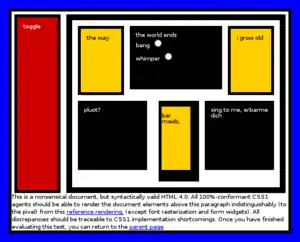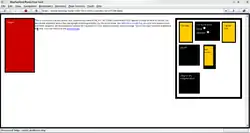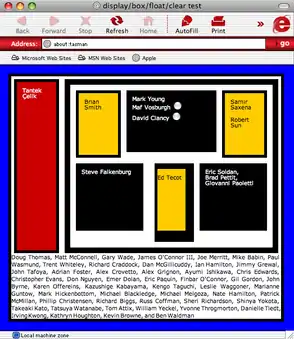Acid1
Acid1, originally called the Box Acid Test, is a test page for web browsers. It was developed in October 1998 and was important in establishing baseline interoperability between early web browsers, especially for the Cascading Style Sheets 1.0 specification. As with acid tests for gold which produce a quick and obvious assessment of the quality of a piece of metal, the web acid tests were designed to produce a clear indication of a browser's compliance to web standards.
 The "reference rendering" for Acid1 | |
Type of site | Web standards test |
|---|---|
| Available in | English language |
| Owner | The World Wide Web Consortium |
| Created by | Todd Fahrner |
| URL | "The Acid1 Test". Archived from the original on 2020-09-17. |
| Commercial | No |
| Registration | No |
| Launched | January 26, 1999 |
| Current status | Offline |


History
Acid1 tests many features on one page against a reference image. Acid1 was developed by Todd Fahrner, who was frustrated with the lack of stringent tests to improve browser interoperability. After looking at tests developed by Braden McDaniel that used reference renderings to clarify the intended result, Fahrner developed a comprehensive test that resulted in a quirky-looking graphic. In 1999, the test was incorporated into the CSS1 test suite.[1] The text used in Acid1 is an allusion to T. S. Eliot's poem The Hollow Men. Acid1 is included as an offline Easter egg in Internet Explorer 5 for Mac OS, accessible by typing 'about:tasman', with the text replaced by the names of the developers.[2]
By early 2008, all major browsers passed the Acid1 test.[3]
See also
- Comparison of layout engines
References
- CSS1 Test Suite: 5.5.26 clear
- Internet Explorer Easter Egg - IE5 Mac Team, The Easter Egg Archive, 2000-06-19
- Acid Test Results in Popular Browsers Archived May 5, 2008, at the Wayback Machine
